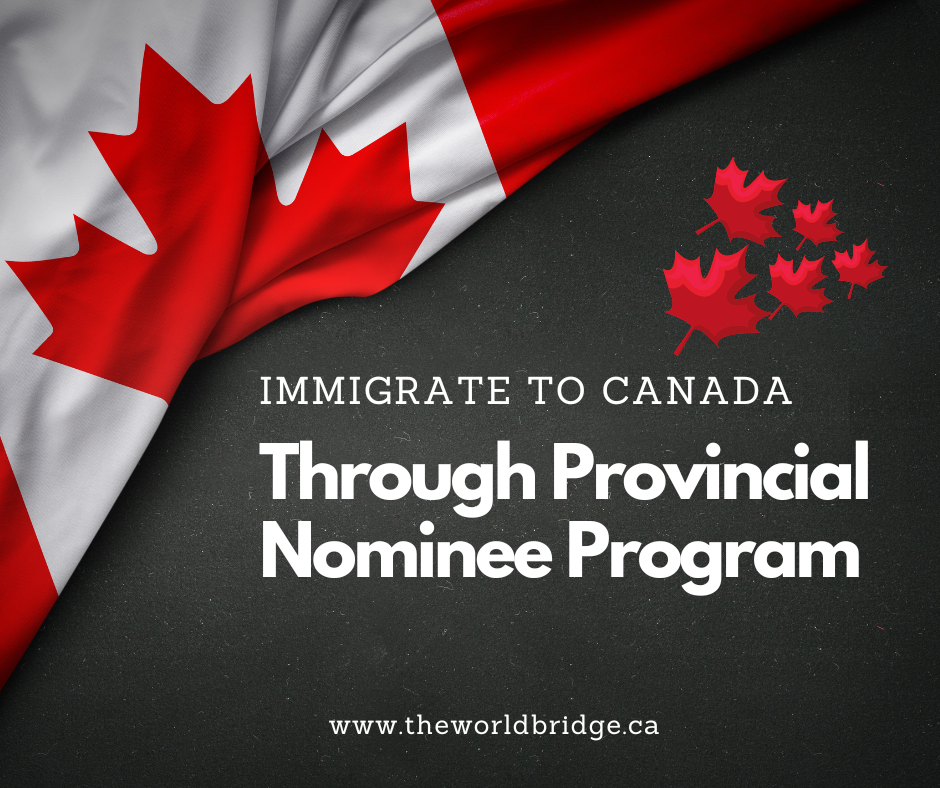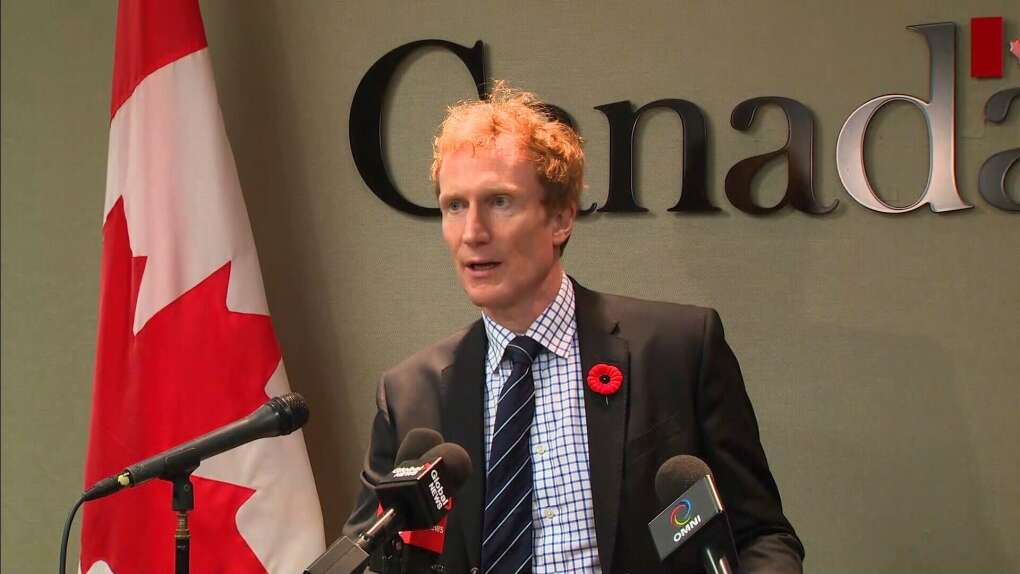The Rural and Northern Immigration Pilot (RNIP) is a strategic initiative launched by the Canadian government in 2019. This program aims to connect skilled immigrants with smaller Canadian communities experiencing critical labor shortages. By doing so, it provides a pathway to permanent residence for eligible foreign nationals who possess the skills and expertise needed to foster growth and development in these communities. Program Status and Potential Extension Initially scheduled to conclude on August 31, 2024, discussions are underway about extending the RNIP due to its significant role in promoting regional development and population growth. The program offers a mutually beneficial scenario: communities address their labor needs while skilled individuals gain a route to permanent residency in welcoming environments. Community Eligibility Criteria To participate in the RNIP, communities must meet specific criteria outlined by the Canadian government: Individual Eligibility Criteria To qualify for the RNIP, individuals must meet the following requirements: It’s important to stay updated on eligibility criteria changes. For instance, adjustments made on September 23, 2022, required individuals who applied for community recommendations between September 23, 2022, and November 15, 2022, to show one year of work experience—at least 1,560 hours—within the past three years. Application Process The RNIP application process involves two main steps: Selection Process During the selection process, IRCC considers several factors: Benefits and Opportunities The RNIP offers several key benefits for both participating communities and skilled immigrants: For skilled immigrants, the RNIP presents attractive opportunities: Recent Developments and Considerations As of March 4, 2024, recent developments regarding the RNIP include: The RNIP continues to offer skilled immigrants valuable opportunities to integrate into welcoming Canadian communities, address labor market needs, and contribute to sustainable community growth. These recent updates and the potential extension hold promise for both individuals and communities looking to benefit from the program’s opportunities. New Immigration Pilot Programs To further bolster the efforts of the RNIP, the federal government has unveiled two new immigration pilot programs aimed at addressing labor shortages in rural areas and among Francophone minority communities. Announced by Immigration Minister Marc Miller in Sudbury, these programs include the Rural Community Immigration Pilot and the Francophone Community Immigration Pilot. The Rural Community Immigration Pilot is an extension of the RNIP, set to launch this fall. It aims to continue the success of the RNIP by providing a streamlined pathway to permanent residency for skilled workers willing to settle in rural and northern communities. The Francophone Community Immigration Pilot, on the other hand, focuses on increasing the settlement of French-speaking newcomers in Francophone minority communities outside Quebec. These pilots will eventually transition into permanent programs, reinforcing Canada’s commitment to supporting economic migration to rural and remote areas. By participating in these programs, newcomers can benefit from living in welcoming communities that offer robust support systems, including housing assistance, language training, and integration services. These initiatives not only help address skilled labor shortages but also contribute to the economic growth and cultural diversity of these regions. Conclusion For those considering immigrating to Canada, these programs present an excellent opportunity to build a prosperous future in a supportive and vibrant community. With the RNIP and the new pilot programs, Canada continues to demonstrate its dedication to welcoming skilled immigrants and fostering sustainable community growth. Let Worldbridge Immigration Services be your guide to a successful future in Canada. Contact us: Website: www.theworldbridge.caEmail: info@theworldbridge.caPhone/WhatsApp: +1-416-727-7766Social Media: @worldbridgeHQ
Immigrating to Canada through the Provincial Nominee Program (PNP)
Canada’s Provincial Nominee Program (PNP) is an integral part of the nation’s immigration system, tailored to address the demand for skilled workers and entrepreneurs. This program empowers provinces and territories to nominate individuals who can contribute to the local economy and fulfill labor market needs, ultimately leading to permanent residency. Understanding PNP Canada The PNP is a collaborative initiative between Canadian provinces and the federal government. It features over 80 immigration streams, each with its own set of eligibility criteria and requirements. These streams are designed to attract a diverse group of immigrants, from skilled workers and graduates to business owners, farmers, and semi-skilled workers, each contributing uniquely to Canada’s multicultural society. The program aims to match the economic needs of each province with the diverse economic profiles of immigrants. Eligibility Criteria for PNP Canada To be eligible for the PNP, applicants must meet the specific criteria outlined by their chosen province or territory. This includes factors like work experience, education, language proficiency, and an intent to live in the province. For entrepreneurs, this often includes possessing a certain net worth and making a significant investment in the province’s economy. Provinces use a point system to evaluate potential immigrants, ensuring that only those who meet their economic and cultural needs are selected. Thorough research into the requirements of the desired province is crucial for potential applicants, as each province has its unique set of criteria. Application Process for PNP Canada Interested individuals can apply to a PNP either directly to a province or through the federal Express Entry system. Applying through Express Entry increases visibility to all provinces and territories and significantly boosts an applicant’s Comprehensive Ranking System (CRS) score by 600 points if nominated, greatly enhancing the chances of receiving an invitation to apply for permanent residency. Steps to Apply: Provincial Nomination: Secure a nomination from a province based on their specific criteria.Federal Application: Submit an application to Immigration, Refugees and Citizenship Canada (IRCC) for a permanent resident visa.Documentation: Provide all necessary documentation to both the provincial PNP and IRCC.Evaluation: Applications are evaluated based on the applicant’s ability to contribute to the province’s economy and culture. Processing Times for PNP Applications Processing times for PNP applications can vary. Those who apply through Express Entry can expect a processing time of approximately 5 to 6 months, whereas direct applications to a province may take anywhere from 12 to 24 months. Each province has its own processing times, and applicants should plan accordingly. The Significance of PNP Canada The PNP is not just a mechanism for economic growth; it’s a gateway for immigrants to establish permanent roots in Canada with potentially fewer hurdles than other immigration pathways. By comprehending the intricacies of the process, eligibility standards, and application procedures, hopeful immigrants can adeptly navigate the PNP and realize their aspirations of building a life in Canada. Benefits of PNP Fast Processing: Provincial nominations can expedite the immigration process.Less Competitive: The PNP is often less competitive than other immigration programs.Economic Benefits: Access to quality products and services, educational facilities, and healthcare services.Eligibility: Applicants with in-demand job offers or skills are prioritized. The journey to Canadian residency through the PNP is a structured yet rewarding process. Aspiring immigrants are encouraged to conduct comprehensive research and stay informed about the latest updates in immigration policies. The PNP offers a viable and efficient route to Canadian residency, providing numerous benefits and opportunities for those looking to start a new life in Canada. For more detailed information and updates on Canadian immigration, contact us: Website: www.theworldbridge.caEmail: info@theworldbridge.caPhone/WhatsApp: +1-416-727-7766Social media: @theworldbridgeHQ
Canada’s Federal, Provincial, and Territorial Immigration Ministers Pledge Continued Collaboration to Strengthen Immigration System
Ottawa, Canada – May 10, 2024 In a landmark summit, the Forum of Ministers Responsible for Immigration (FMRI) convened to chart the future course of Canada’s immigration policies. Immigration ministers from across federal, provincial, and territorial governments pledged to strengthen their collaborative efforts to enhance the country’s immigration system. Key Takeaways from the Summit Strategic Plan for Immigration: Central to the summit was the unveiling of the Strategic Plan for Immigration (SPI) for 2024-2027. This comprehensive plan outlines a vision for a flexible, timely, and effective immigration system designed to maximize the economic and social benefits of immigration across all regions of Canada. Collaborative Efforts: The ministers emphasized the critical role of collaborative governance in managing immigration priorities. This includes meticulous planning of immigration levels, economic immigration strategies, and the settlement and integration of newcomers. Economic and Social Benefits: Recognizing the pivotal role of immigration in driving the nation’s economy and enriching its social fabric, the ministers underscored the importance of a well-managed immigration system to ensure these benefits are equitably distributed throughout the country. Public Services and Integration: Effective newcomer integration is contingent upon robust public services. The ministers concurred on the necessity for sustained collaboration to fortify the immigration system and to reinstate funding to employment services under the Labour Market Transfer Agreements (LMTAs). Provincial Nominee Program (PNP) The PNP was lauded as a critical tool for addressing regional labour market needs and supporting economic, cultural, and societal objectives. Discussions also highlighted the role of immigration in enhancing the vitality of Francophone communities outside Quebec. Temporary and Permanent Residents: A balanced approach to the influx of temporary and permanent residents was debated. For the first time, the federal government plans to include temporary residents in the annual immigration levels plan, aiming to reduce their population to 5% of Canada’s total population. Labour Market and Cultural Diversity: Temporary residents were acknowledged for their substantial contributions to Canada’s prosperity, labour markets, and cultural diversity. The ministers called for strategic management of any reductions in temporary resident volumes, ensuring alignment with labour needs in key industry sectors. The 2024 FMRI Summit represents a unified effort by Canadian immigration authorities to tackle the challenges and leverage the opportunities presented by immigration. The concerted focus is on ensuring the country continues to benefit from the contributions of newcomers while maintaining robust support systems for integration and public services. Let Worldbridge Immigration Services be your guide to a successful future in Canada. Contact us: Website: www.theworldbridge.caEmail: info@theworldbridge.caPhone/WhatsApp: +1-416-727-7766Social media: @theworldbridgeHQ Source: IRCC





